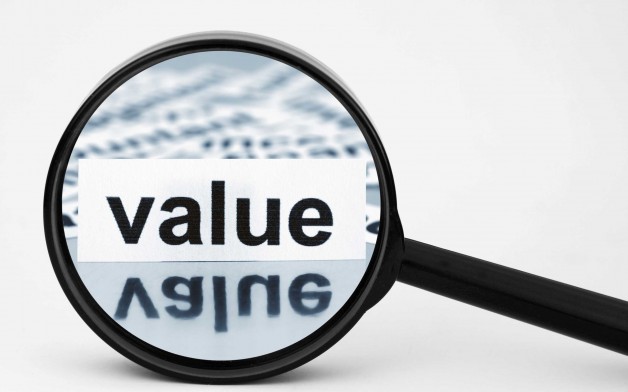As a proper thinking entrepreneur, you have decided that the pizza place that’s been on the corner of your street for 15 years – and is now for sale by its original owner – would be the perfect business to buy. You have some cash on hand, you know that the owner is willing to provide a loan for the balance (at a below market rate), and you have worked your way up through the fast food jungle from counter person to assistant manager. All the stars appear to be properly aligned, so what could possibly go wrong? Well, let’s think about the asking price for a minute. Pay too much and you may find that it will take a lot longer to reach profitability. Pay too little and … well, that almost never happens, does it? How do you value an existing business for sale?
Any existing business has some intrinsic value, even if it’s on its last legs. Maybe the equipment can be pawned or resold, or perhaps the brand name still pulls in a few customers. There are many ways to calculate the fair value of an existing business – successful or otherwise – but it rarely makes sense to take the owner’s word for it. At the very least you will want to apply your own metrics to the process. It usually makes good fiscal sense to get a business valuation done by a professional or, at the very least, by a trusted yet disinterested third party. Sad to say, there are literally dozens of methods that people use to determine the value of existing businesses for sale. Not all of them will apply to the company your eye is on, but there are some basic rules worth following.
Valuation Methodologies
Some companies are valued based upon a multiple of their annual earnings. This multiplier varies from one industry to another. For instance, large companies that are traded publicly are usually valued at five to ten times earnings. Smaller companies must rely on a smaller number; after all, risk of failure is higher with small businesses. Another method that varies from industry to industry involves a sales multiplier, where a company may be worth three times annual sales, or as little as half annual sales in a down economy. Sales and earnings are quite different, as the latter takes into account such factors as taxes, write-offs, expenses of various other kinds, and depreciation. A simpler method essentially subtracts liabilities from assets, leaving you with a pretty basic number over which to argue.
Testing Your Methods
One way to determine whether or not an existing business is a good buy, once you have arrived at a logical purchase price, is to apply the “net present value” test. With this method, it’s assumed that today’s money is worth more than money in the future, due to inflation, depreciation of assets, and so on. A company’s revenues are projected into the future and reduced by this “lesser value” principle, as well as by the perception of how risky the business or its sector may be. After calculating this number and removing from the total your purchase price, if the number is negative, you’re paying too much. But when all else fails, ask an expert. There are many professionals out there who regularly determine the value of an existing business, and they’ll even use more than one method to show you a different way of looking at a company’s true worth.
Red Flags to Bear In Mind
Here are some factors to take into account before you do the math in valuing an existing business for sale. Knowing the answers to these questions can be of great help. How much of the company’s value is due solely to the owner’s ability to perform (cult of personality)? Do members of the existing current management team have less than a clue about running a business, and consequently have underbid its true price? Is everything working except for a marketing plan, thereby offering an easy fix for the new owner? Is the company cash poor simply because the current owner is paying himself or herself too high a salary compared to the firm’s profits?
Closing Question
What does it take to recognize a good deal with existing businesses for sale, and are you savvy enough to recognize these signs? Make sure you do your research before buying a business!

